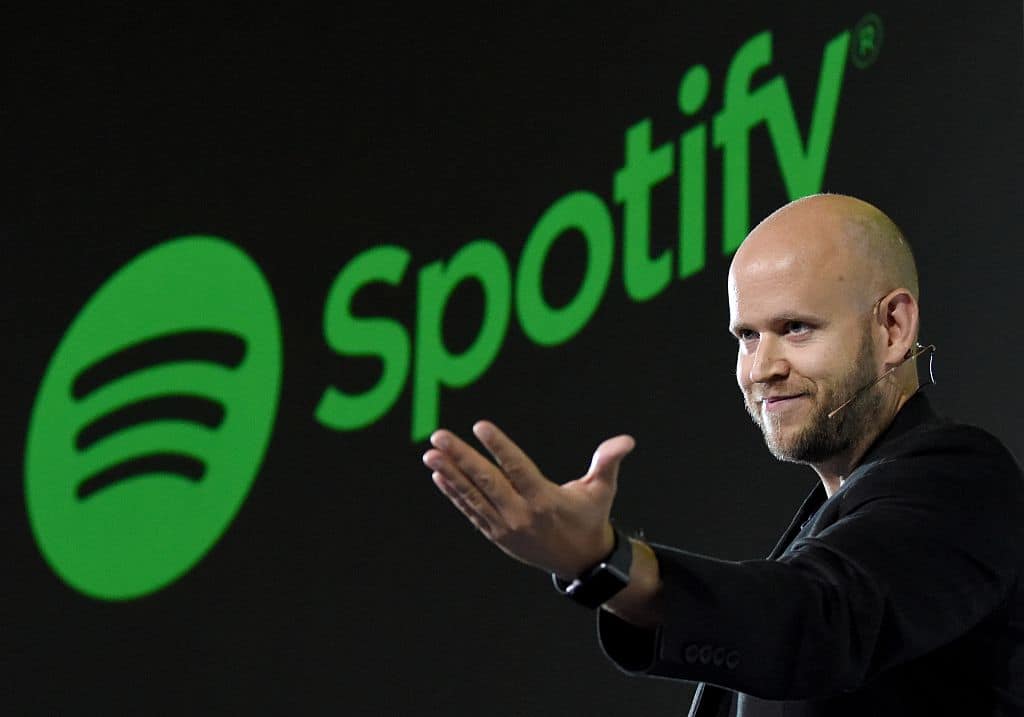It’s been a big week for high-profile apologies.
Virginia Gov. Glenn Youngkin said he regretted what he called an “unauthorized” Twitter swipe from his team to a teen. Biden administration science adviser Eric Lander apologized for his treatment of subordinates. Joe Rogan said he was sorry for his use of the n-word in past podcasts just a week after an earlier apology about conversations on his show with vaccine skeptics. And Spotify CEO Daniel Ek apologized to staff for the impact on them of the racial slur controversy as the streaming service’s P.R. crisis continues.
But how effective apologies are often depends on how much responsibility the person takes—and increasingly important, who’s doing the listening. Communication pros say that while good apologies take unfettered ownership for what happened, the practicalities of a divided country mean it’s harder than ever to offer an apology that will appease everyone.
“In any discussion today it’s almost impossible to make everyone happy—and apologies are the same,” says Davia Temin, a communications adviser who is also a contributor to Forbes. “If you string a few of the right words together it can sound to people like it was an apology. … The art of the non-apology has been refined tremendously.”
Lander apologized directly for his conduct amid a White House review that reports said found evidence he had demeaned his staff at the Office of Science and Technology Policy. Monday night, he tendered his resignation to President Joe Biden, who had made past promises to have no tolerance for disrespectful behavior in the workplace.
Loading...
In a tweet, the teen to whom Youngkin apologized, Ethan Lynne, said he didn’t think Youngkin’s statement was an apology. (The Youngkin team’s Twitter account shared a since-removed photo of Lynne, who has volunteered in Democratic politics, with former Va. Gov. Ralph Northam (D), calling out past controversies.) “While he acknowledged the situation, Governor Youngkin did not apologize and did not condemn what happened over the weekend,” Lynne tweeted.
Meanwhile, Rogan’s most recent apology prompted applause from many Instagram followers and a rebuke from former President Donald Trump. And Spotify CEO Ek’s apology was held up by some observers as a “classic non-apology apology” when the Spotify CEO said he’s “deeply sorry for the way The Joe Rogan Experience controversy continues to impact” his employees, apologizing not for what happened but for how it impacted them.
For an apology to be successful, it needs to admit a mistake and take ownership of it, describe what a leader is going to do to fix it and explain why it won’t happen again, says Paul Argenti, a professor at Dartmouth College’s Tuck School of Business who studies communications issues. When it doesn’t, he says, “I would argue it does more harm than good. You’re creating another problem. One of the rules of crisis management is to solve the problem once and for all, not put a band-aid on it and then see if we can get through this.”
Argenti says that apologizers who don’t take full responsibility follow a pattern. “When you see people using that strategy, they’re trying to tread a line,” he says. When leaders do that, they may be “trading off the legal issues and the issues you face in the court of public opinion,” he says. “They want to have their cake and eat it too.”
“One of the rules of crisis management is to solve the problem once and for all, not put a band-aid on it and then see if we can get through this.” —Dartmouth College’s Tuck School of Business professor Paul Argenti
Temin agrees that ideally, apologies don’t qualify what happened or who was responsible. But even if the definition of what’s seen as a “good apology” hasn’t changed, she says the practicalities of it have.
In a country as divided as ours, some will see a half-apology as the right move, while others will find it lacking. “People are more calculating in who their audiences are—and speaking to their audience—as opposed to just speaking their truth,” says Temin.
She points to Youngkin’s comment about regretting the “unauthorized” tweet as an example. “A lot of people in Virginia will buy that,” she says. In a divided political and cultural landscape, she says, “one person’s apology is another’s non-apology.”
When it comes to apologies, leaders must have courage to speak about things in a way that rings true and doesn’t qualify them, she says, something that’s harder than ever today. “We attack one another so easily,” she says. “There’s a reason why everybody is pulling back on what they say.”
Loading...
